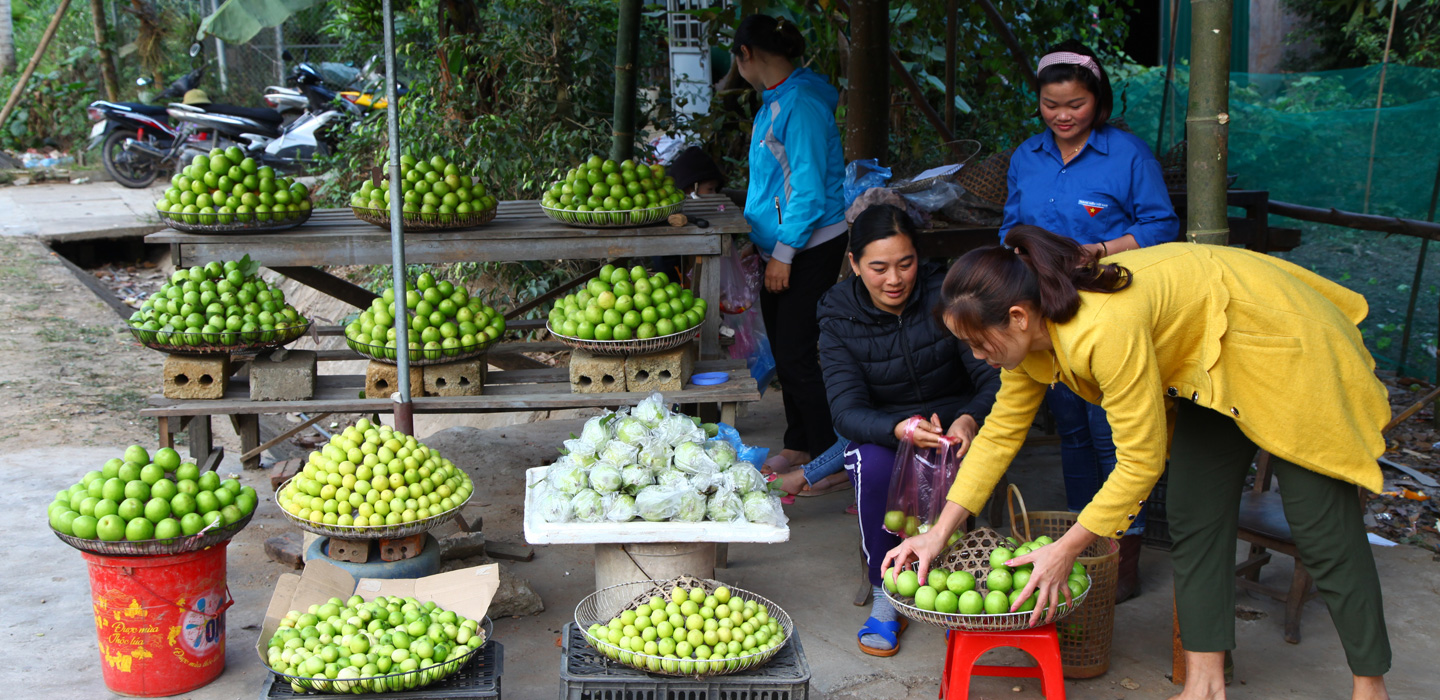Changing lives in times of uncertainty: how innovative agriculture builds resilience
IFAD Asset Request Portlet
Asset Publisher
Changing lives in times of uncertainty: how innovative agriculture builds resilience
Estimated reading time: 3 minutes
©IFAD/Susan Beccio
As countries rush to prepare for the global coronavirus pandemic, to protect their citizens and economies, the mandate of a rural development organization may seem to some not particularly relevant to the current crisis. However, experience has shown that crises and disasters have a ripple effect in the form of higher food and fodder prices, civil unrest and diminished social services as governments redeploy budgets. In this regard, whether crises unfold in urban areas or rural areas, poor people in developing countries are always disproportionately affected because they have less capacity to cope with the impacts.
Small-scale farmers and small rural enterprises are the backbone of rural economies and national and regional food systems. It is vital that rural areas continue to be supported in order to help countries avoid food shortages. The closing of borders and lockdown of regions affects rural services including local and regional markets and may lead to a disruption of food supply chains which would have adverse effects on both producers and consumers.
IFAD prioritizes mid- to long-term development to help rural communities build resilience to shocks of all kinds. Small-scale farmers need tools and resources to produce food and earn sustainable incomes and the resilience to cope with shocks, rebound and continue to move out of poverty--and stay there.
Here in IFAD’s Mekong Hub, we have recently published a collection of 15 stories of rural people whose lives have been changed by IFAD’s work in Cambodia, the Lao People’s Democratic Republic, Myanmar, the Philippines and Viet Nam.
These stories provide examples of how our work is constantly evolving, piloting new ideas, solving problems in innovative ways, building on lessons learned and scaling up initiatives that work well, into larger projects. The stories also emphasize the importance of a wide-range of partnerships on the ground and the role of dedicated project staff in bringing about project success. As a results-based and learning organization, IFAD believes strongly in knowledge sharing. By collecting and sharing these stories, we hope to disseminate our experiences to a wide audience and support readers to learn more about the issues that poor rural people face.
I invite you to listen to the voices of people who live in remote, rural areas in Southeast Asia ― they are their own advocates for innovation and effective change. They may be from ethnic minority groups; they may be smallholder farmers or participants in farmer-to-farmer organizations; they may have had access to a loan for the first time; or they may have benefited from a public-private-partnership arrangement. They may be from one of five countries, but they all have something in common: strength, and the desire to change their circumstances.
Agriculture plays a predominant role in the economies of these countries, as the majority of the workforce is employed in the agricultural sector. With a large share of each country’s population relying on agriculture for their livelihoods, developing the agricultural sector is the solution for rural development and poverty reduction in rural areas. It is the key to strengthening food security and improved household nutrition. Governments are focusing on agriculture to achieve economic transformation and job creation in rural areas.
IFAD-supported rural and agricultural development programmes and projects in these countries have reached more than four million households over 25 years. Currently, there are 17 IFAD-supported programmes and projects in these countries, with a total investment of US$988.2 million. IFAD-supported projects have applied a variety of techniques. These include a commodity-based value chain approach, improved technology, increased credit and financial services, making available extension services and training, adaptation of farming practices to a changing climate, special attention to improving food and nutrition security, and overall improvement of livelihoods and quality of life for poor rural people in the target areas.
Looking back and moving forward, and on behalf of the IFAD team working in Cambodia, the Lao People’s Democratic Republic, Myanmar, the Philippines, and Viet Nam, I can emphatically say that we are proud to be in partnership with the people featured in this book and thousands of others in rural communities in these countries. We thank them for having confidence in us, as we believe in them, and we hope readers of this booklet are witness to the trust that sustains our partnerships with smallholder farmers and families in rural communities.
Personally, I have been moved by the significant improvements in the lives of rural people I have witnessed during my several field visits in the region, and have been inspired by the positive changes I have observed with my own eyes over the last two years. I look forward to the day when we are able to completely eliminate poverty and hunger in rural areas in the region.
Publication date: 30 March 2020
